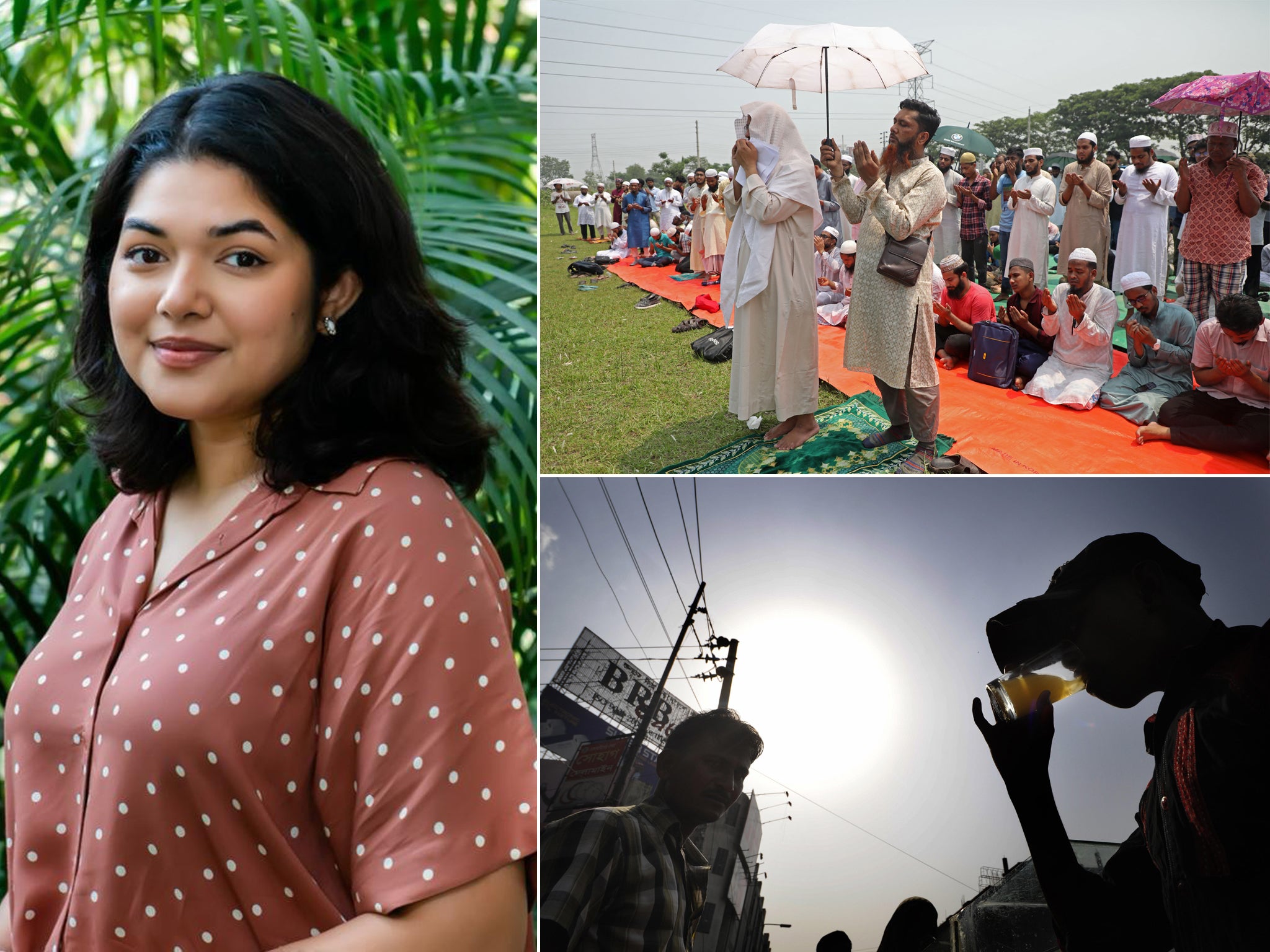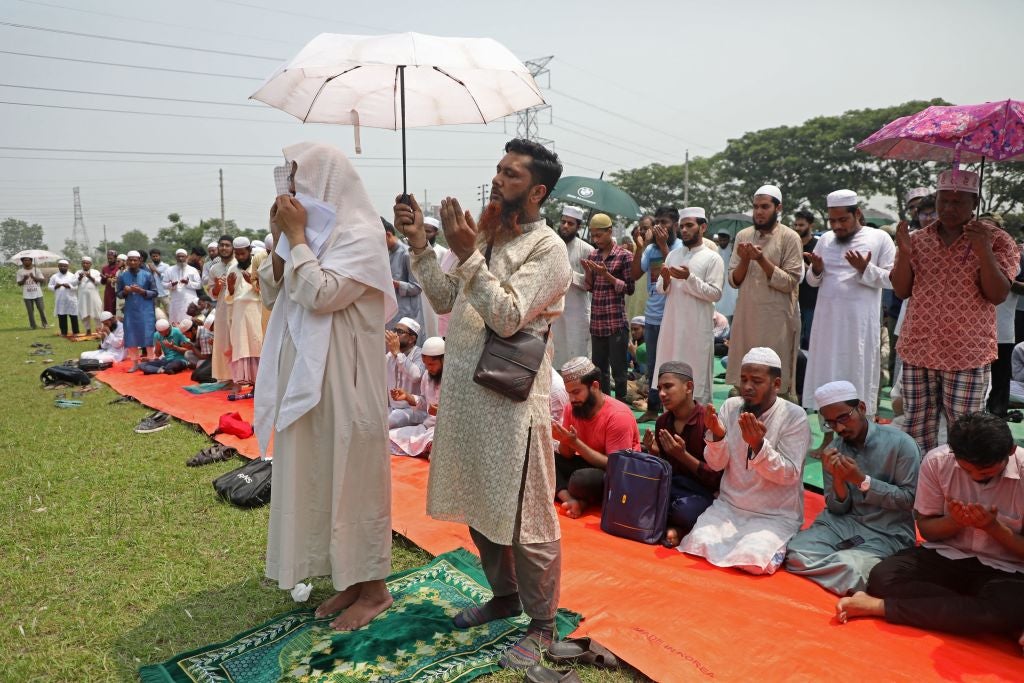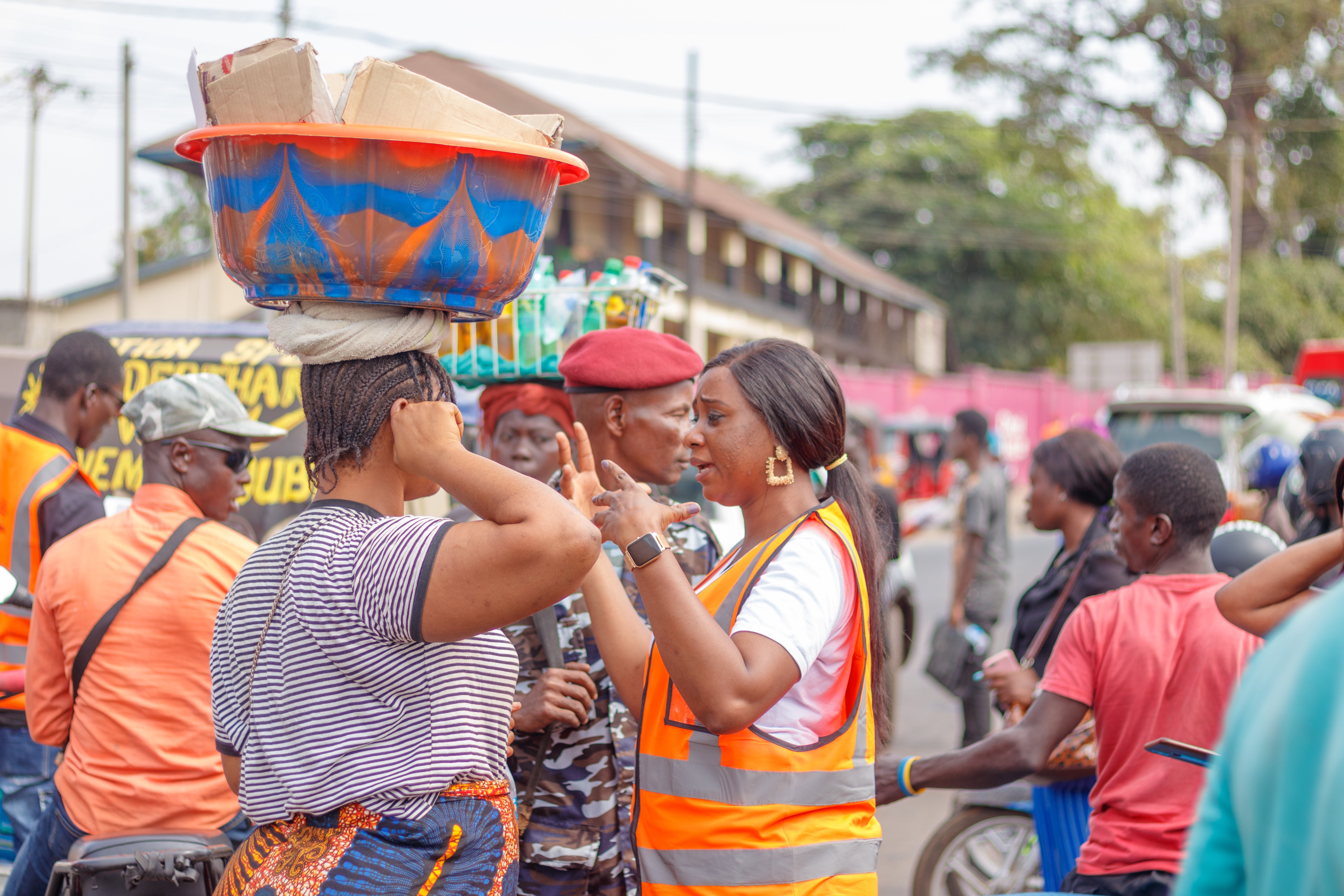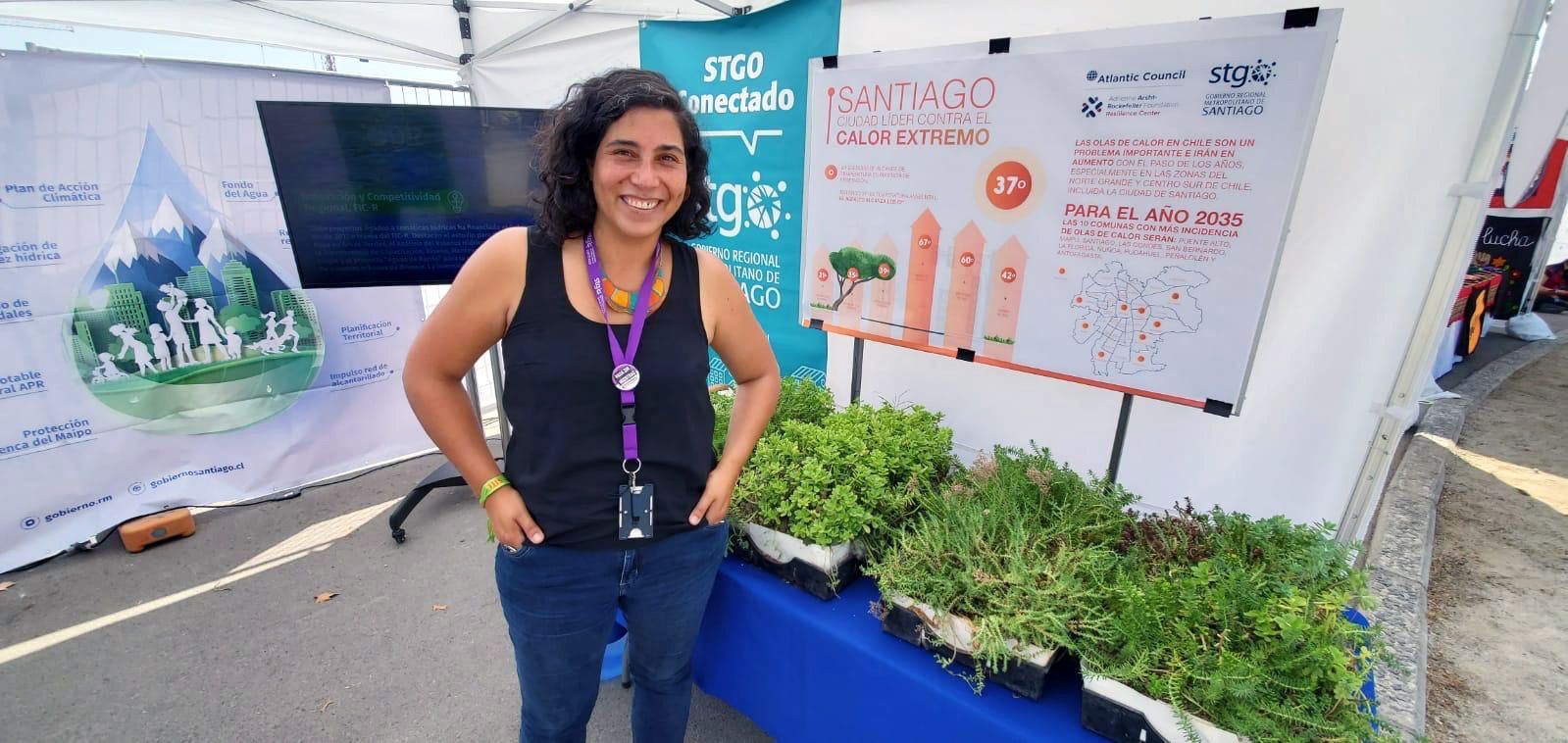Asia’s first ‘chief heat officer’ joins all-female squad tackling extreme temperatures around the world
Searing heat has forever changed Dhaka, Bangladesh’s largest city, Bushra Afreen tells senior climate correspondent Louise Boyle. Now, she’s leading an effort to tackle the crisis and save lives


Your support helps us to tell the story
From reproductive rights to climate change to Big Tech, The Independent is on the ground when the story is developing. Whether it's investigating the financials of Elon Musk's pro-Trump PAC or producing our latest documentary, 'The A Word', which shines a light on the American women fighting for reproductive rights, we know how important it is to parse out the facts from the messaging.
At such a critical moment in US history, we need reporters on the ground. Your donation allows us to keep sending journalists to speak to both sides of the story.
The Independent is trusted by Americans across the entire political spectrum. And unlike many other quality news outlets, we choose not to lock Americans out of our reporting and analysis with paywalls. We believe quality journalism should be available to everyone, paid for by those who can afford it.
Your support makes all the difference.When she was a child, Bushra Afreen would hear of people leaving her hometown of Dhaka for opportunities to study or work abroad.
Now, dangerous, suffocating heat is driving those who can afford it out of Bangladesh’s capital city.
“Dhaka is my home but it’s not a city that I recognise anymore because of the unbearable heat,” Afreen told The Independent last week. “Unlivable – that’s the word which commonly gets associated with Dhaka now.”
Bangladesh experiences some of the highest temperatures in Asia. The monthly average of 30C regularly feels even hotter when combined with the region’s high humidity.
Dhaka hit 40.6C during a heatwave last month, its highest temperature in six decades. Rising global greenhouse gas emissions, from burning fossil fuels, will continue to make life there even hotter.
Bangladesh is moving “towards an almost permanent state of heat wave”, according to a 2021 World Bank report.
It’s a crisis that Afreen is facing head-on after she was announced as Dhaka’s first “chief heat officer” on Wednesday. She is also the first “CHO” in Asia to join an all-female squad in cities around the world.
“I want to push more engagement and work with all communities but especially those who are really vulnerable,” Afreen said.
CHOs are already in place in Miami, Florida; Freetown, Sierra Leone; Athens, Greece; Santiago, Chile; Monterrey, Mexico; and Melbourne, Australia. (Los Angeles also has a CHO after the city took a liking to the idea and decided to fund the position for themselves.)
The roles have been created by the Adrienne Arsht-Rockefeller Foundation Resilience Centre, an international think-tank with a goal to make 1 billion people more resilient to extreme heat by 2030.
Heat is a silent and insidious killer that claims the lives of more people than any other climate disaster and is particularly dangerous for the elderly, young children, the poor, and those with existing health conditions.
Cities are chosen to be part of the Arsht-Rock pilot scheme not just because of their propensity for extreme heat but also because they have mayors and local governments receptive to innovative solutions.
CHOs tailor their plans to best suit each individual place – whether that be farm workers in the US southeast; market traders in Sierra Leone; or pensioners in Greece.

Afreen says she’s keen to learn from her fellow CHOs, noting the “secret” WhatsApp message group that the women share.
“I’m really looking forward to getting to know them and working with them,” she said. “They have so much experience that I’m sure will help me work in a much more impactful way.”
Women were deliberately selected for the roles because women are disproportionately impacted, Kathy Baughman McLeod, director of Arsht-Rock and the mastermind of the CHO programme, told The Independent.
The number of dangerously hot days is estimated to double by 2050, and the greatest burden will fall on women and girls.
Not only does extreme heat disproportionately impact women’s health, but they are the backbone of the informal economy around the world – in piecework, domestic duties and care-taking for children and the elderly.
”Having women leading the work, it makes sense,” Baughman McLeod said. “It’s just a good investment.”
Many major cities in poorer countries face overlapping climate and environmental threats and Dhaka, the world’s fourth-largest with more than 22 million people, falls firmly in that camp.
The city is fast-growing and densely populated with temperatures that can be more than 10C higher than rural areas.

“People really are at risk of dying, I don’t know how else to say it,” says Afreen, who has a background in the public and private sector across social welfare, government and micro-finance. “You can’t sweat enough to release all that heat from your body.”
The recent heatwave led to large fires in Dhaka adding to its already dire air pollution.
“It became a very hostile environment to even step outdoors in,” she added.
More than 2,000 people are arriving in Dhaka every day with no choice but to live in informal settlements. Many are from rural farming and fishing communities forced to leave their homes because they have experienced other climate disasters, Afreen explained.
Two-thirds of Bangladesh is less than 15 feet above sea level and the rising ocean and heat-amped cyclones have claimed hundreds of thousands of acres of land.
Afreen describes a “harm chain” where people live largely without access to proper sanitation or drinking water. To survive, they must work with little protection in extreme temperatures.
“The kicker is that these housing quarters are composed entirely of metal – the worst thing under heat,” she said. “During this [latest] heatwave, the thing I kept hearing was that no one was able sleep at night, the houses felt like ovens.”
Only the wealthy can afford air conditioning and for many in informal dwellings, there are no cool showers for relief. Even the drinking water lines end up boiling hot.
“It’s a public health crisis,” Afreen said. “People don’t have access to their basic human right to be able to cool themselves down.”

While long-term infrastructure changes take time, Baughman McLeod said, the first priority of CHOs is to raise public awareness. “That's the quickest life-saving feature there is,” she said.
In Miami, the world’s first-ever CHO Jane Gilbert worked with the city to designate May/October as official heat season, piggybacking on a public campaign already in place for hurricane preparedness.
In Florida, radio was discovered to be particularly popular in certain communities so multilingual public service announcements were broadcast on Haitian and farmworkers’ radio channels, Gilbert told Fast Company last year. In parts of town with the highest numbers of heat-related illnesses, billboards and bus shelter posters warned about heat exposure.
In Santiago, CHO Cristina Huidobro is overseeing a $2m urban tree-planting programme to help cool neighbourhoods after it was greenlit by the region’s governor.
And Freetown’s CHO Eugenia Kargbo found out from market traders that their greatest need was coverings for stalls. It’s a relatively simple, rapidly-deployed solution that not only protects them but also the goods from which they earn a living.
With summer fast approaching, Afreen is similarly focused on public awareness in Dhaka and discussing with local groups how to rapidly reach the most vulnerable.
“I’m so grateful to work on heat, it’s high time honestly. Everyone is at risk,” she said. “I want to create a cooler, more equitable future not just for my own daughter but for all the other kids.”



Join our commenting forum
Join thought-provoking conversations, follow other Independent readers and see their replies
Comments